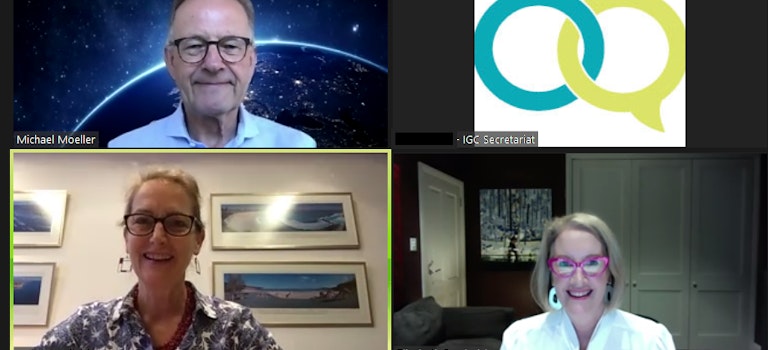As part of the Gender Champions Challenge, the Australian Mission in Geneva and the IGC held a high-level discussion to explore concrete ways to advance a more inclusive workplace culture on 23 July 2020.
As the famous saying goes, “culture eats strategy for breakfast”. No matter how robust gender policies are, equality will never fully be achieved until we shape a culture free of sexism, biases and discrimination. But changing hearts and minds takes leadership and commitment, as organisations often face backlash and resistance on the way.
COVID-19 has massively disrupted the way we work and communicate, with millions of workers around the world being forced to telework. As we reinvent a new normal, this major crisis could in fact provide a gateway to shape a more flexible and inclusive culture in our workplaces.
To get the International Gender Champions (IGC) exploring ways to bring about change, a high-level discussion was organized by the Permanent Mission of Australia to the United Nations in Geneva and the IGC on 23 July 2020. Featuring the participation of Elizabeth Broderick, Convenor of the Male Champions of Change, and IGC co-founder Michael Møller, this event gave Champions an opportunity to reflect and exchange frankly on remaining challenges and opportunities.
Ambassador Sally Mansfield told the story of the Australian Department for Foreign Affairs and Trade, which began its journey with the Women in Leadership Strategy in 2015. “It was a very big focus on strengthening leadership and culture, on accountability and inclusion, and embedding substantive equality and mainstreaming flexible work and dismantling barriers”. As she highlighted, it starts with asking very difficult questions, being prepared to listen to the answers and act on them.
Reflecting on the foundation of the IGC and his personal experience as a Champion, Michael Møller underlined the importance of providing a “legal framework” to the advancement of gender equality by establishing robust policies, of using the power of leadership to call out discriminatory or sexist behaviours, and ‘being on the game everyday’..
When telling the story of the Male Champions for Change, Elizabeth Broderick emphasized that she “could put all the data [she] wanted in front of the CEOs, [she] needed to engage their hearts, as well as their minds”. Cultural change is indeed “tough work, because it comes down to the way we are and live”.
Elizabeth Broderick mentioned that to start this conversation, leaders such as the International Gender Champions need to address some key difficult questions such as:
- As there is a traditional fear that men will lose if women are empowered, what does equality mean as a man working in the organization?
- As leaders need to be the shift they want to see in the world, how am I leading and what is my leadership shadow in relation to this? That is: 1) How I act, 2) What I say, 3) What I prioritize, 4) What I measure
Over the next few months, the IGC will be actively engaged in advancing a more inclusive workplace culture through the Gender Champions Challenge. Find out more here.
Watch the recording of the Champion Salon below!
